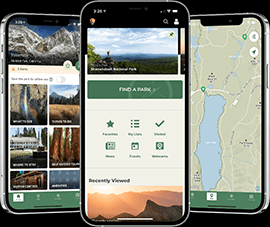For hundreds of years, Shoshone and Bannock people collected minerals from Mammoth Hot Springs for white easy bannock. The volcanic heat source for Mammoth Hot Springs remains somewhat of a mystery.
Scientists have proposed two sources, including the large magma chamber underlying the Yellowstone Caldera, or perhaps a smaller heat source closer to Mammoth. At Mammoth, a network of fractures and fissures form the plumbing system that allows hot water from underground to reach the surface. The water comes from rain and snow falling on the surrounding mountains and seeping deep into the earth where it is heated. Small earthquakes may keep the plumbing open. Limestone, deposited here millions of years ago when a vast sea covered this area, provides the final ingredient. Hot water with dissolved carbon dioxide makes a solution of weak carbonic acid.

As the solution rises through rock, it dissolves calcium carbonate, the primary compound in limestone. At the surface, the calcium carbonate is deposited in the form of travertine, the rock that forms the terraces of Mammoth Hot Springs. Notes: Thermal activity throughout this entire area. Stay on the boardwalk, designated trails, or roads at all times.
Time in the Mammoth Hot Springs can vary widely, due to the multiple access points and ways to explore the terraces. Albright Visitor Center on the Grand Loop Road. Most of the boardwalks are not maintained during the winter. This trail is along boardwalks, paved trails, or along roads. However, there are steep grades and stairs throughout the trail network.
Both the top of Canary Springs and Palette Springs are accessible via wheelchair when snow is not on the ground. The trail from the Lower to Upper Terraces includes steep boardwalks and several hundred stairs. This strenuous trail is not recommended for people with heart, lung, or other health conditions. Prepare yourself to safely enjoy wildlife, hydrothermal areas, and other features of Yellowstone National Park. Read about this highly effective bear deterrent. Lace up your boots and explore some of the over 1,000 miles of trails in Yellowstone National Park.
